
December 21, 2020- As the number of digital nomads rises globally, some are choosing to spend some of their time in Croatia. Continuing our TCN series meeting international digital nomads calling Croatia their temporary home. Meet Jess and Thibaud, from San Francisco to Jelsa on Hvar.
It has been a very strange year for tourism, but not all of it has been bad news.
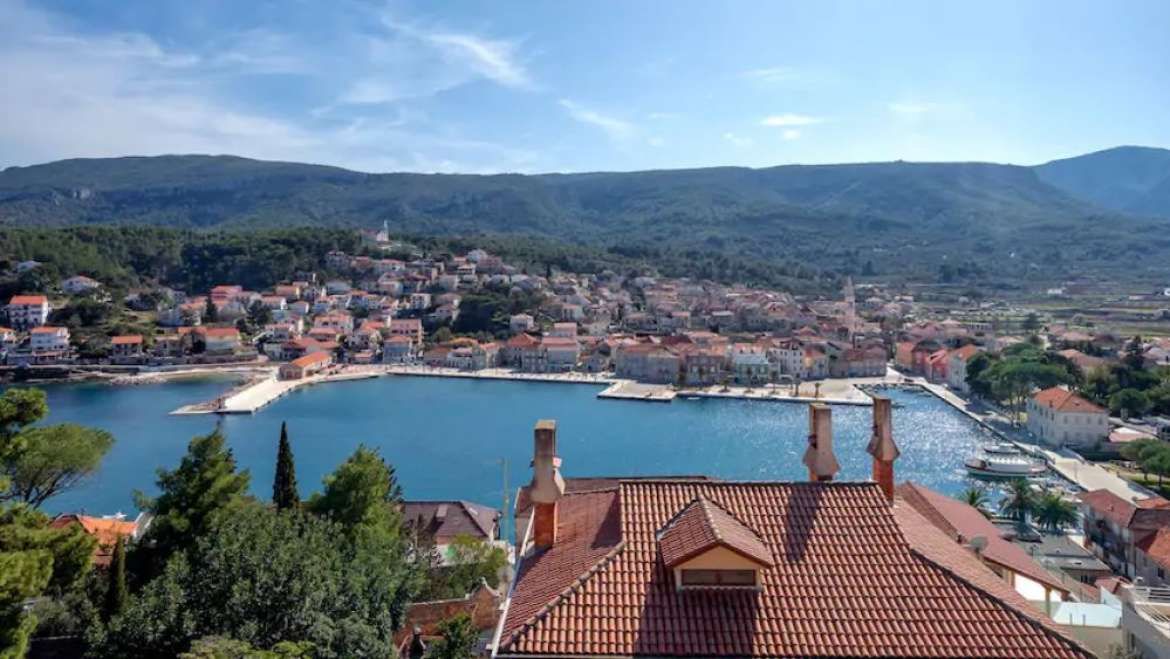
Renting our AirBnB apartment, Panorama Penthouse Jelsa, for example. Who would have imagined this time last year that the apartment would be empty for large parts of the early summer, but then booked solid for the winter months when it is normally empty? And by not one, but two digital nomad couples…
Meet Jess and Thibaud, the latest digital nomads in our series meeting remote workers choosing Croatia. What does San Francisco have that you couldn’t possibly find in Jelsa anyway?
Tell us a bit about you and your work.
Thibaud grew up in Paris and has spent most of his life in Northern California. I’m from New York, which is where I lived until we moved to San Francisco a few years ago. We love to travel and spent five months backpacking in Asia in 2018. If I had to describe us in a sentence, I’d say we’re an adventurous pair that likes to live life to the fullest.
We work in the technology sector and have spent the majority of our careers at companies based in Silicon Valley. As a product manager, Thibaud designs and builds digital experiences for software platforms and tools. He sets the strategy and partners with engineering, design and business teams to make that happen. I work in business development, specializing in fintech. My job is to help companies grow and improve their market positions through client/supplier relationships and partnerships. Fun fact: we met at work!
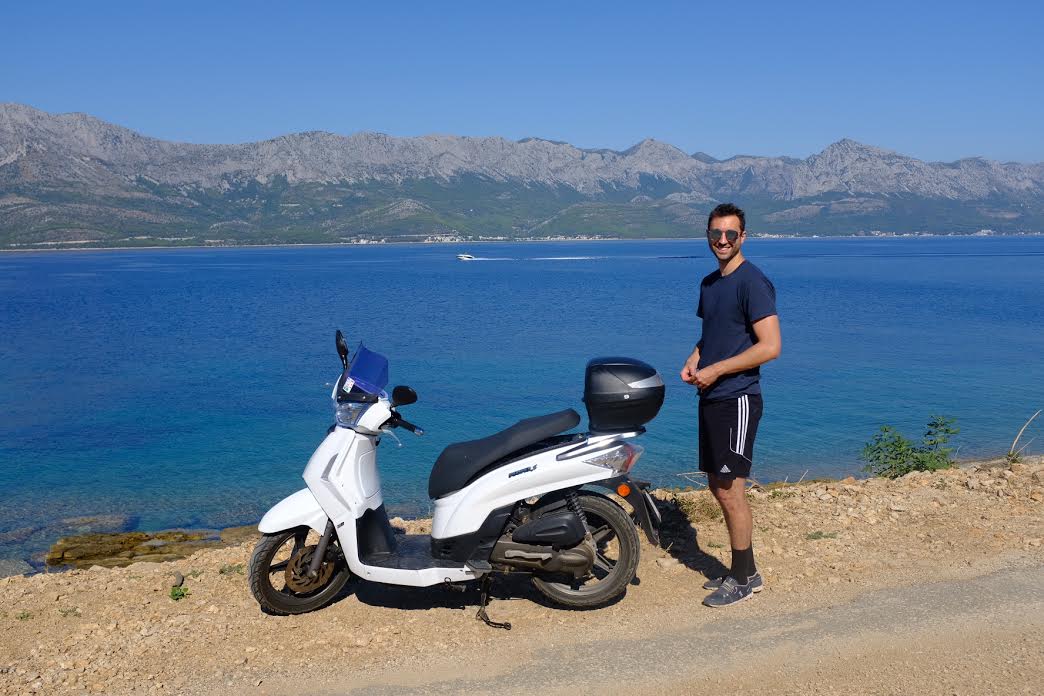
Pros and cons of working remotely?
Some of the more challenging aspects have been exacerbated by the pandemic – for example, the lack of social interaction. During normal times, people are able to meet with friends and family and go about their daily lives outside their homes, which balances the fact that they may not see their colleagues regularly. With the lockdowns, working from shared spaces or cafes isn’t an option, so it can be a bit isolating. Living and working in the place can lead to overworking, so it’s been important for us to set some of the boundaries that exist with non-remote work. Eating meals away from our laptops, keeping to a loose routine, and taking time for movement have been helpful ways to break up the day.
More effort is required to build and maintain relationships with colleagues when working remotely. Information can fall through the cracks without those impromptu desk-side chats in the office and that glass of wine with your teammate at the end of the workday. Remote work requires more mindfulness about how you interact with colleagues and clients.

The overall flexibility that remote work enables is the biggest pro. Without it, the term ‘digital nomad’ wouldn’t be a thing! We feel fortunate that our roles can be done remotely, as opposed to many professions that require physical presence. Not being tied down to one location and being able to experience new places is one of the best things about working remotely. Not having to commute is great as it saves time and reduces your carbon footprint. Being able to prepare your own meals is a pro. Having the ability to choose your working setup is a pro, such as taking calls while on a walk or switching rooms to follow the sun. Having the option to wear whatever you’re most comfortable in everyday is also a nice perk.
Remote work also enables companies to hire the best talent regardless of where people live. Being able to build teams across borders can be positive for both employers and employees from an economic perspective and also help drive diversity of thought.
This isn’t an exhaustive list of the pros and cons, but highlights some of the aspects of working from home. For us, the benefits of remote work outweigh the challenges.
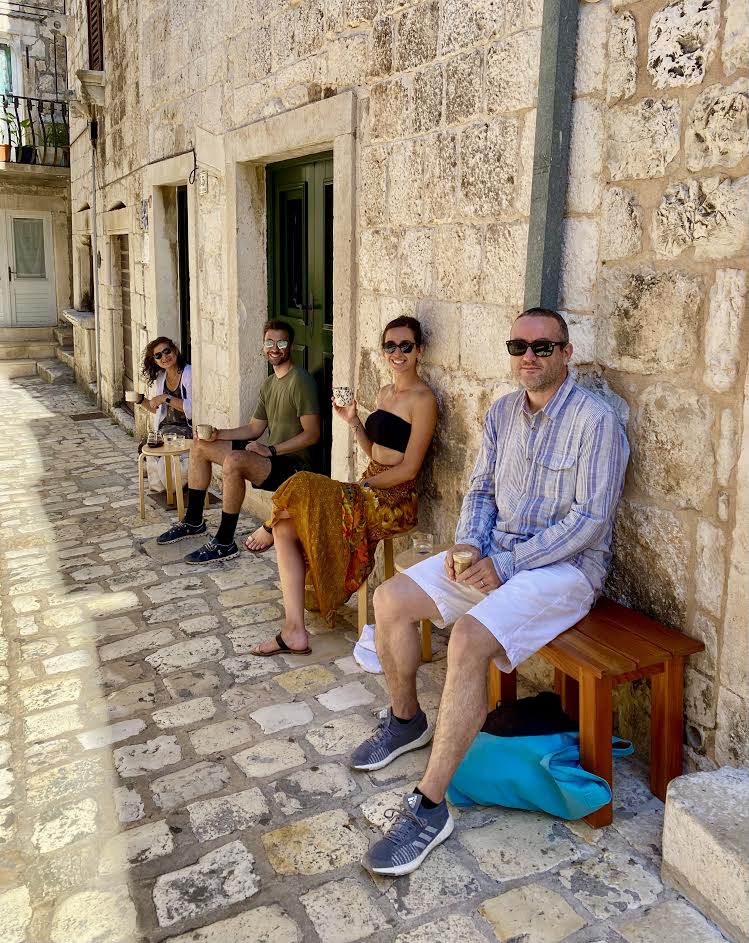
How did you choose Croatia and specifically Jelsa?
It was a major decision to travel, let alone temporarily relocate, during Covid-`19. After weighing the risks, we decided to take advantage of our new ability to work remotely. Prior to the pandemic, we had been able to work from home occasionally but not consistently. Many technology companies started to enable employees to work from home full-time in March and we knew that we would not need to return to our offices for several months. We fully embraced the uncertainty of 2020 – we closed our San Francisco lease in June, took a month-long road trip around the western United States, and then took a one-way ticket to Split.
We wanted to spend our time remotely working in Europe and Croatia was one of the few countries open to Americans in August. I had visited Dubrovnik, Hvar and Split a few years ago, so I had some familiarity with Croatia. We chose to avoid big cities, and decided that a smaller town on an island would be a good choice. We searched Hvar and Brač for accommodations and I was excited about this Airbnb in Jelsa, primarily because of the terrace and view. Jelsa turned out to be just the kind of destination we were looking for – quaint, walkable, and charming.
Our original plan was to stay about a month in Croatia and then travel to another European country. But within a few days of arriving, we extended our booking to two months. In October, we considered traveling elsewhere, but decided against it given the rising Covid-19 risk and changing border restrictions. Plus, we were happy in Jelsa and felt settled despite having been there for a short time. We’ve made some incredible friends here and feel a sense of community – for that, we are very grateful!
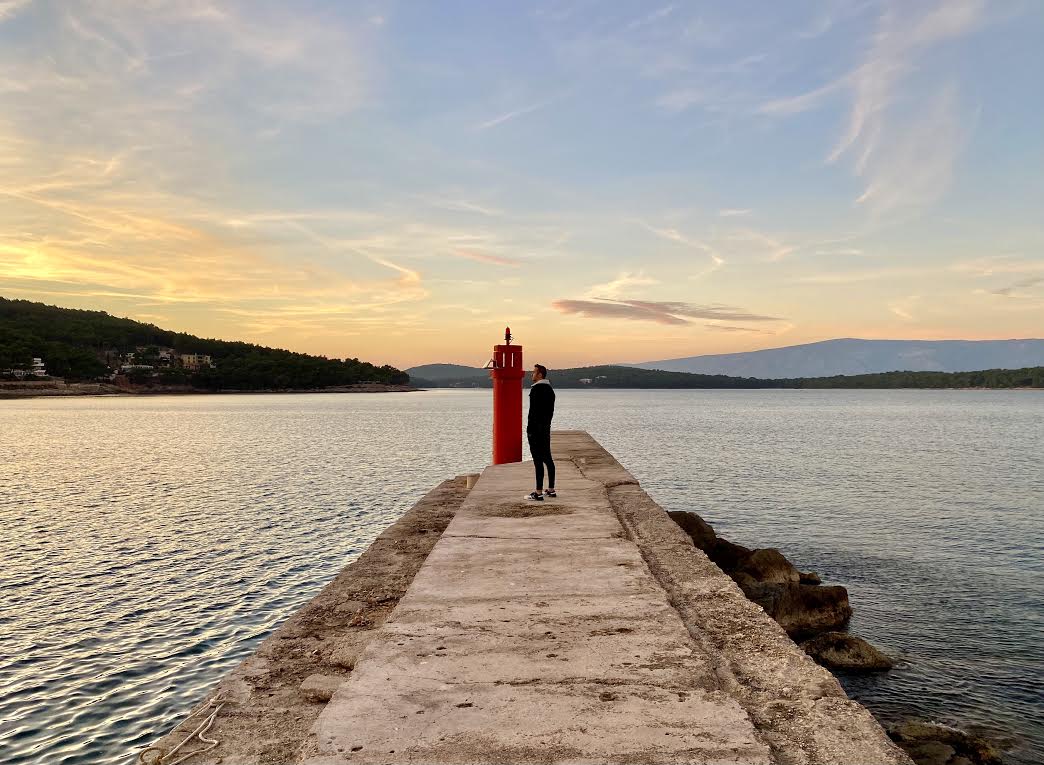
What’s important for a destination to offer to be compatible with a digital nomad lifestyle, apart from good WiFi?
This varies from person to person. We consider things that enable a good quality of life based on our priorities. Comfortable and affordable housing, ideally with a full kitchen and adequate desk space, is important. The beauty of the surroundings and access to nature is also a priority, at least for us. We’ve lived in busy cities, so one advantage of being a digital nomad is being able to live in serene and quieter places.
Being able to get around is important, so walkability is a plus. It’s also important to be able to find high quality food and have grocery stores nearby. Access to basic healthcare is also a consideration. Athletic facilities, such as a gym or soccer fields, are also pluses.
It’s easier to meet people and go about everyday life in places where English is spoken widely. Being able to connect with people is really important, so the presence of expat communities can be helpful, as well as the openness of the culture. We’ve had an extremely positive experience with Croatians in general – our friends and acquaintances have been so welcoming, friendly and willing to help us out with just about anything.
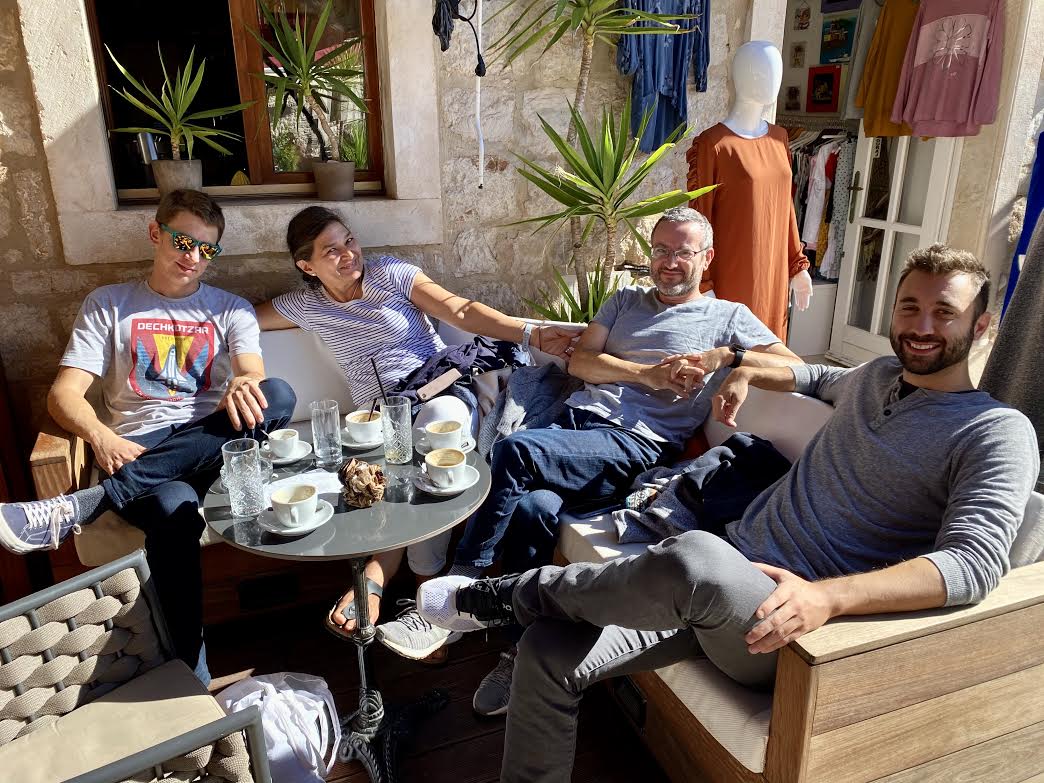
What’s your view on the future of remote work?
Remote and flexible work arrangements have been trending for the past decade or so, and Covid-19 has certainly expedited that trend. Many people have been encouraged to stay at home and non-remote companies have had to adapt quickly. As a result, I think it’s been eye-opening for workers and companies to see that, in fact, remote work can be productive and even beneficial for morale and results. Covid-19 is likely a forcing function for companies, as well as for individuals, to re-evaluate their work arrangements. Fully remote models may not work for everyone or every company, but I do think that flexible work arrangements will become the norm in some industries.
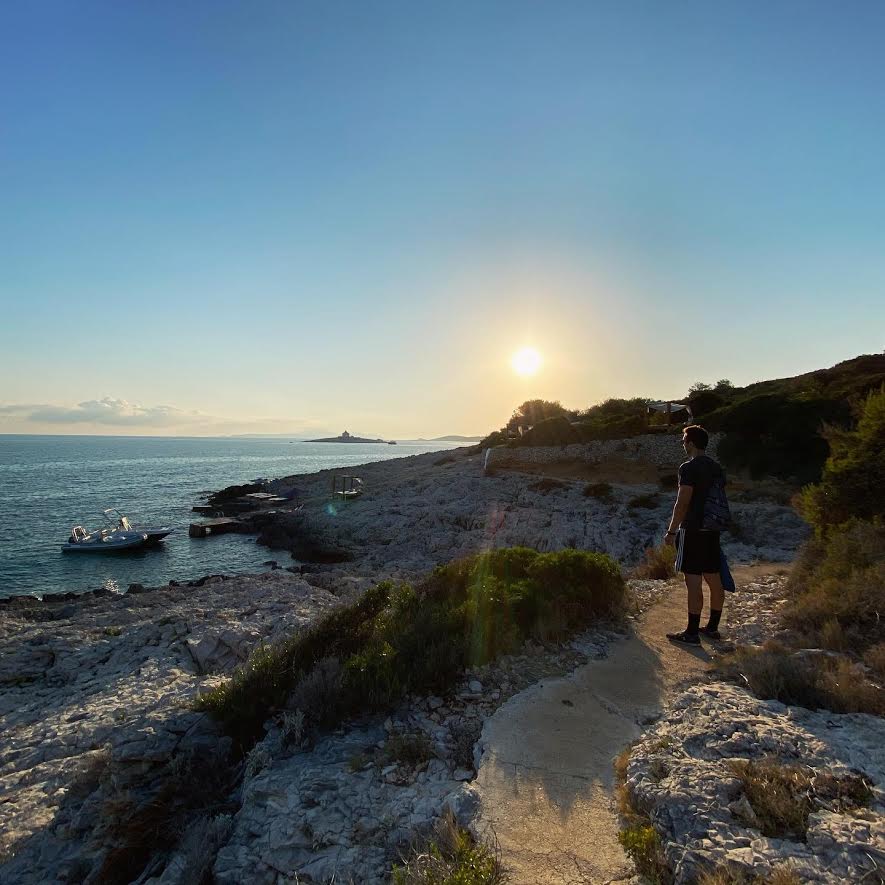
Do you have any advice for people looking to make the transition to digital nomad life?
Think about what you’re trying to optimize for and how different aspects of remote work do or don’t suit your lifestyle. If you’re relocating, research potential destinations before making the move. In order to be effective at your job and maintain good work/life balance, it’s important to be disciplined with your time and to set boundaries.
Most importantly – if remote work is something you want to do – just go for it! Companies are embracing remote work more now than ever. It may take some persistence to find a new role or company, or to negotiate with your current employer (which might be you!). Most decisions aren’t permanent – if it doesn’t work out, you can always go back to what you’re doing now. The grass isn’t always greener on the other side, but you won’t know until you take that leap.

To learn more about Croatia for the digital nomad, check out the Total Croatia Digital Nomad guide.
To follow the latest news about digital nomads in Croatia, follow the dedicated TCN section.
Are you a digital nomad in Croatia who would like to be featured in this series? Please contact us on [email protected] Subject Nomad











